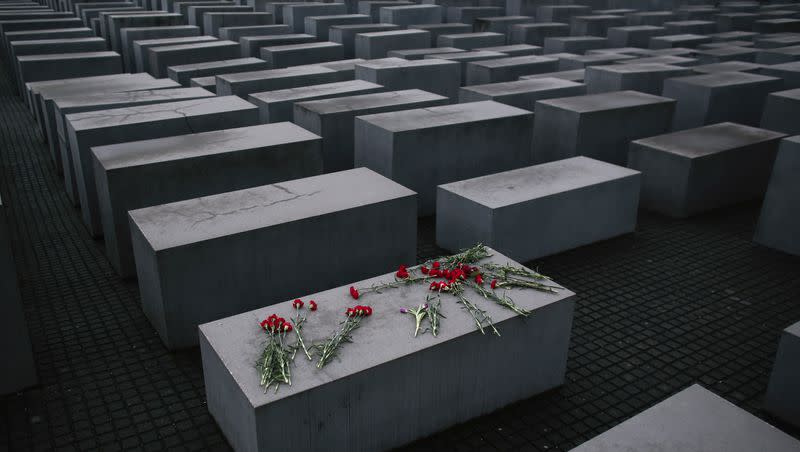The power of music during the Holocaust

Sheet music found at Auschwitz concentration camp has been restored and performed by a composer to remember and honor those killed and those who survived.
Leo Geyer, 31, spent close to eight years restoring the music. He said throughout his research, he became aware of how music was an integral part of life at the concentration camp — not just for the Nazis but as an outlet for those imprisoned to share their stories and experiences.
On Monday, four of the pieces restored by Geyer — together called “Orchestras of Auschwitz” — were performed by Constella Music at the Sadler’s Wells Theatre in London, England, reported CNN. To be true to how it might’ve sounded, the orchestra used instruments such as accordions and saxophones, instead of traditional orchestra instruments.
“For the most part they were quite small and had a bizarre hodgepodge of instruments,” Geyer told CNN.
María Luisa Paúl of The Washington Post wrote about the performance and compared the music to a book.
“‘Futile Regrets,’ as the composition was titled, unfolded like the pages of a tragic novel,” wrote Paúl. “The violin strings reverberated with the weight of unspeakable sorrows. With each note, the instruments conjured the cold, unforgiving realities of the barbed wire and watchtowers that once imprisoned its anonymous composer at Auschwitz-Birkenau.”
The concert raised funds for the theatre’s upcoming ballet that will draw on more of Auschwitz’s prisoner orchestras, per The Post.
“Music is incredibly powerful, and it enables us to engage with the Holocaust in a new and a different way,” Geyer told The Washington Post. “And unfortunately, because the times we’re living in at the moment and the rise of antisemitism worldwide, the importance of Holocaust remembrance has never been more significant.”
Related
How music saved lives during the Holocaust
Anita Lasker-Wallfisch, who was a prisoner and cellist at Auschwitz, told the Holocaust Memorial Day Trust that “as long as the Germans wanted an orchestra, it would have been counter-productive to kill us.”
Her grandson, Simon Wallfisch, performed in the musical performance on Monday, per CNN.
Books like “The Musicians of Auschwitz” and the findings of Geyer also show the impact music had on the prisoners’ survival.
Historian Shirli Gilbert of The University of South Hampton in the United Kingdom said that music was a way “to document” what the prisoners were experiencing.
“Jews being held in concentration camps were unable to document what was happening to them by conventional means,” she said in a release. “Writing down or photographing this would have been impossible, so they turned to a long cultural tradition of telling their stories through songs and music.”
Although the musicians were forced to play marching songs to keep other prisoners moving, music was also used to console, support and gain confidence, said Guido Fackler, a professor of museology at the University of Wurzburg, Germany, and expert on the music played in concentration camps, to The New York Times.
“It reminded them of their earlier lives,” Fackler told The Times.
Music was also a form of rebellion.
“Many of the musicians started to rebel with what we call musical cryptograms, which is where you have messages in some way in the music,” Geyer told CNN of the music he restored.
Some of the sheet music found at Auschwitz had the Polish national anthem and “The Stars and Stripes Forever,” by American composer John Philip Sousa, per The Washington Post.
Related

